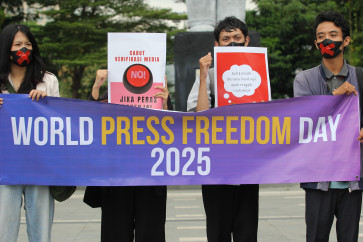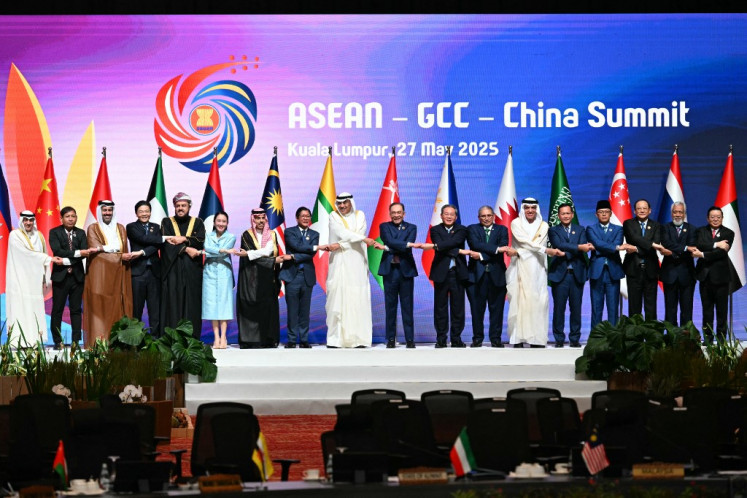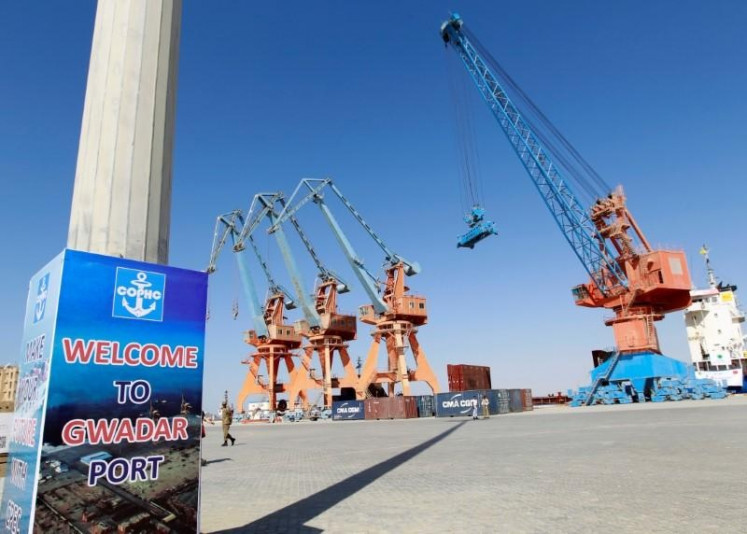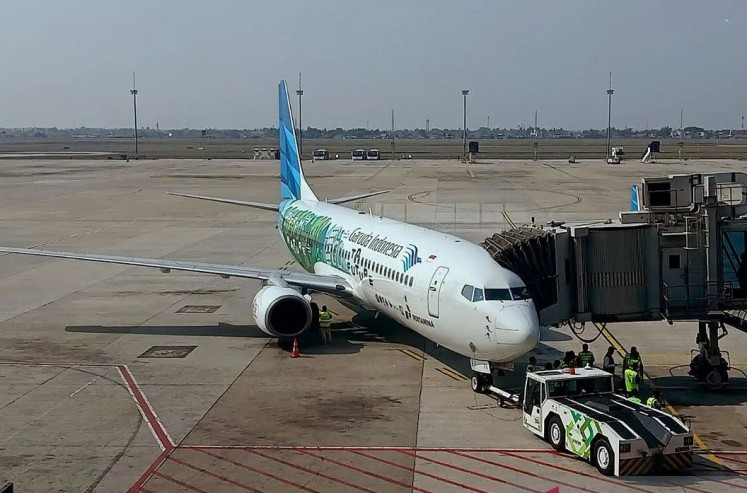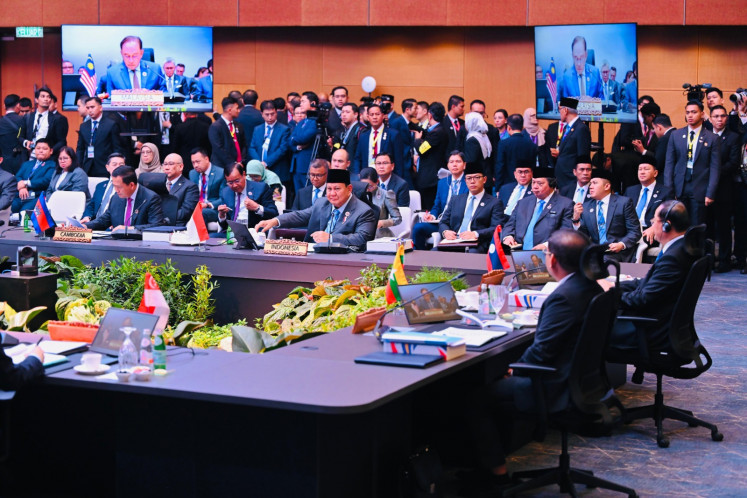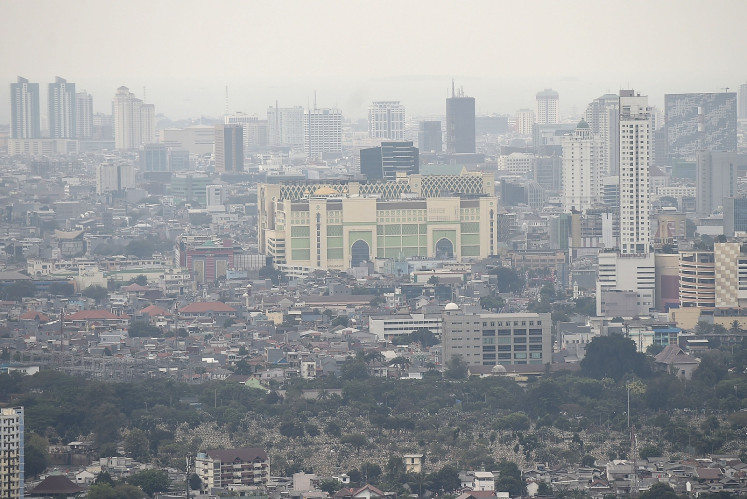Trump says US wants to make tanks, not T-shirts
Change text size
Gift Premium Articles
to Anyone
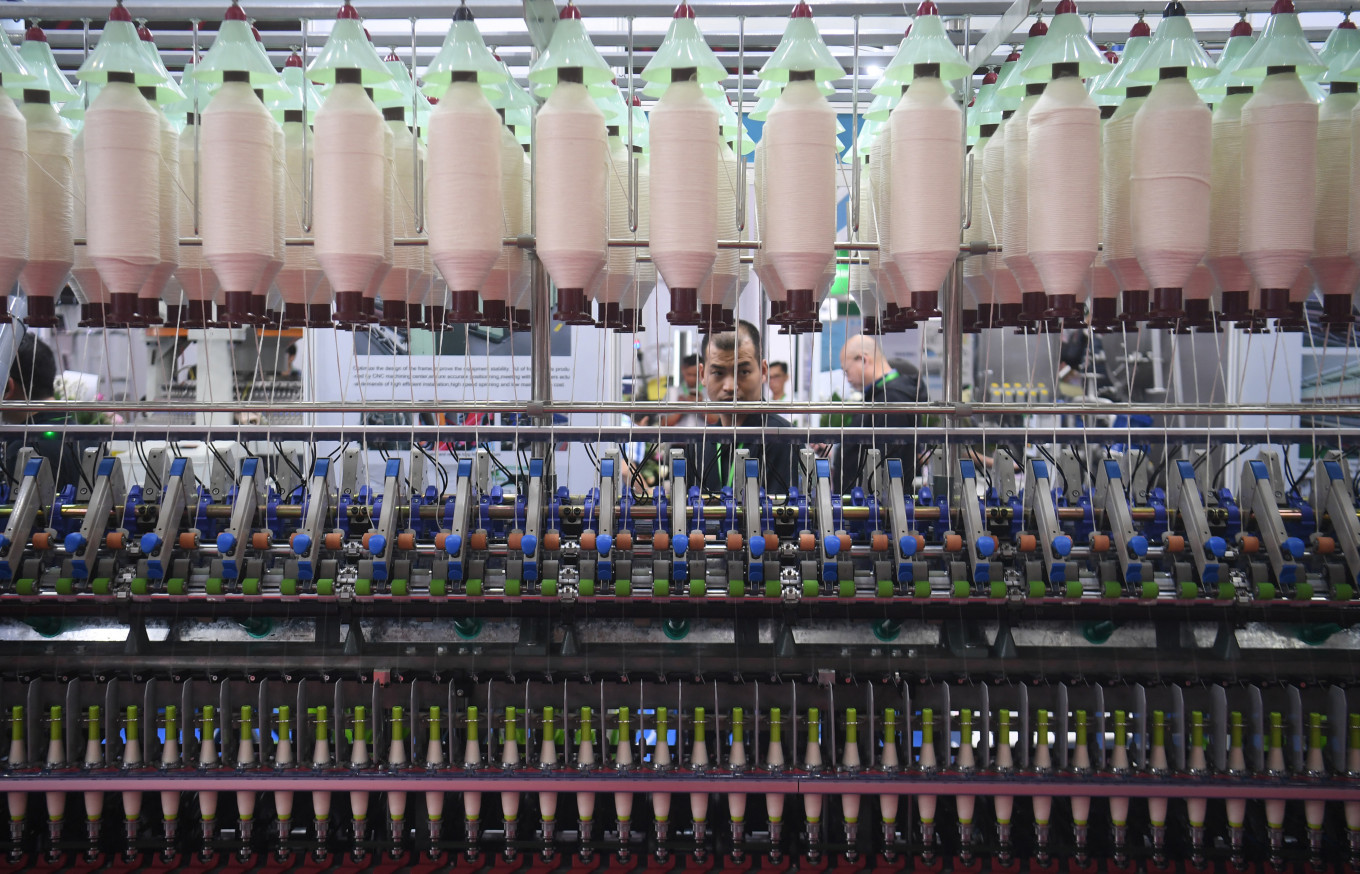 Visitors look at a textile machine during the 20th Indo Intertex Expo at Jakarta International Expo in Sawah Besar, North Jakarta, in March 2024. (Antara/ Akbar Nugroho Gumay)
Visitors look at a textile machine during the 20th Indo Intertex Expo at Jakarta International Expo in Sawah Besar, North Jakarta, in March 2024. (Antara/ Akbar Nugroho Gumay)
U
S President Donald Trump said on Sunday his tariff policy was aimed at promoting the domestic manufacturing of tanks and technology products, not sneakers and T-shirts.
Speaking to reporters before boarding Air Force One in New Jersey, Trump said he agreed with comments from Treasury Secretary Scott Bessent on April 29 that the US does not necessarily need a "booming textile industry" – comments that drew criticism from the National Council of Textile Organizations.
"We're not looking to make sneakers and T-shirts. We want to make military equipment. We want to make big things. We want to make, do the AI thing," Trump said.
"I'm not looking to make T-shirts, to be honest. I'm not looking to make socks. We can do that very well in other locations. We are looking to do chips and computers and lots of other things, and tanks and ships," Trump said.
The American Apparel and Footwear Association said in response to Trump's remarks that tariffs were not good for the industry.
"With 97 percent of the clothes and shoes we wear being imported, and with clothes and shoes already the most highly tariffed industry in the US, we need to focus on common sense solutions that can move the needle," AAPA president Steve Lamar said in a statement. "More tariffs will only mean higher input costs for US manufacturers and higher prices that will hurt lower income consumers."
Trump, who has upended world markets with the broad imposition of tariffs, revived his harsh trade rhetoric on Friday when he pushed for a 50 percent tariff on European Union goods starting June 1 and warned Apple he may impose a 25 percent levy on all imported iPhones bought by US consumers.
But he dialed back on the EU threat on Sunday, extending a deadline for those tariffs until July 9 to allow for talks between Washington and the 27-nation bloc.
Trump won the 2016 and 2024 US presidential elections in part by appealing to working class voters hurt by the loss of US manufacturing jobs over many years.
He has sought to make good on his promises to boost manufacturing with import tariffs and heralding investments by companies and foreign nations into the United States, even as the US economy remains dependent on supply chains with other countries where many goods, including textiles, are produced less expensively.




